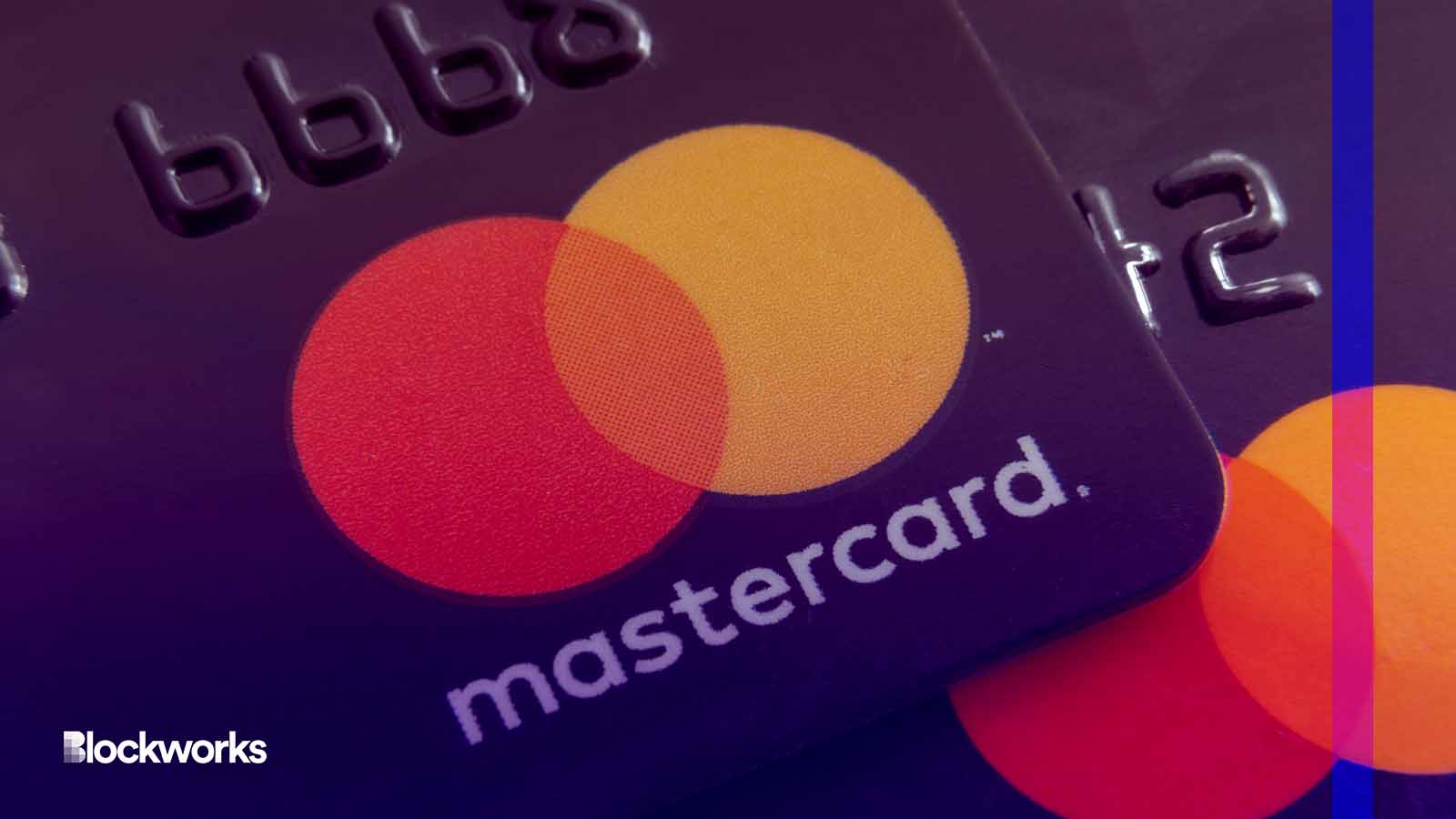Mastercard to continue crypto foray with beta launch of ‘blockchain app store’
The credit card giant is expected to release the beta version of the product this summer

garmoncheg/Shutterstock modified by Blockworks
In its latest blockchain push, Mastercard on Wednesday said the payment processor would roll out a test version of its Multi-Token Network (MTN) this summer.
The product was set to be launched as a beta in the United Kingdom.
Raj Dhamodharan, Mastercard’s head of crypto and blockchain products, in a Wednesday letter said that MTN will “act as a testbed for developing live pilot applications and use cases with financial institutions, fintechs and central banks.”
The plan is to roll out MTN to more global markets, pending additional partners. The idea hinges upon selling developers on building on Mastercard’s permissioned blockchain, which the company has positioned as capable of transforming its payments capabilities.
Mastercard has promoted invites to what it’s calling the MTN Innovation Sprint. Teams will be selected to receive access to MTN’s capabilities and begin developing on the platform.
Developers will be encouraged to create apps on Mastercard’s permissioned blockchain, which is built on Ethereum, Fortune reported.
The first round of such apps will be powered by “tokenized bank deposits,” according to Dhamodharan.
Tokenized bank deposits are gaining traction among central banks and commercial banks like JPMorgan Chase.
MTN will also be utilizing the company’s transaction verification tool, Mastercard Crypto Credential, Dhamodharan wrote.
The tool at its debut was designed to provide aliases to aid in sharing wallet addresses, while using metadata to define wallet attributes. The setup is designed to prevent unintended transactions from being carried out.
Mastercard in the statement emphasized safety and the need to have “safe transfers of tokens and assets.” This comes on the heels of major exploits, including the $200 million Euler hack in March and the $160 million Wintermute hack.
Mastercard has partnered with several crypto exchanges — Binance, Bit2Me, Bitso and Bybit — to issue debit or prepaid cards that allow users to make purchases with their digital assets.
Get the news in your inbox. Explore Blockworks newsletters:
- The Breakdown: Decoding crypto and the markets. Daily.
- 0xResearch: Alpha in your inbox. Think like an analyst.






